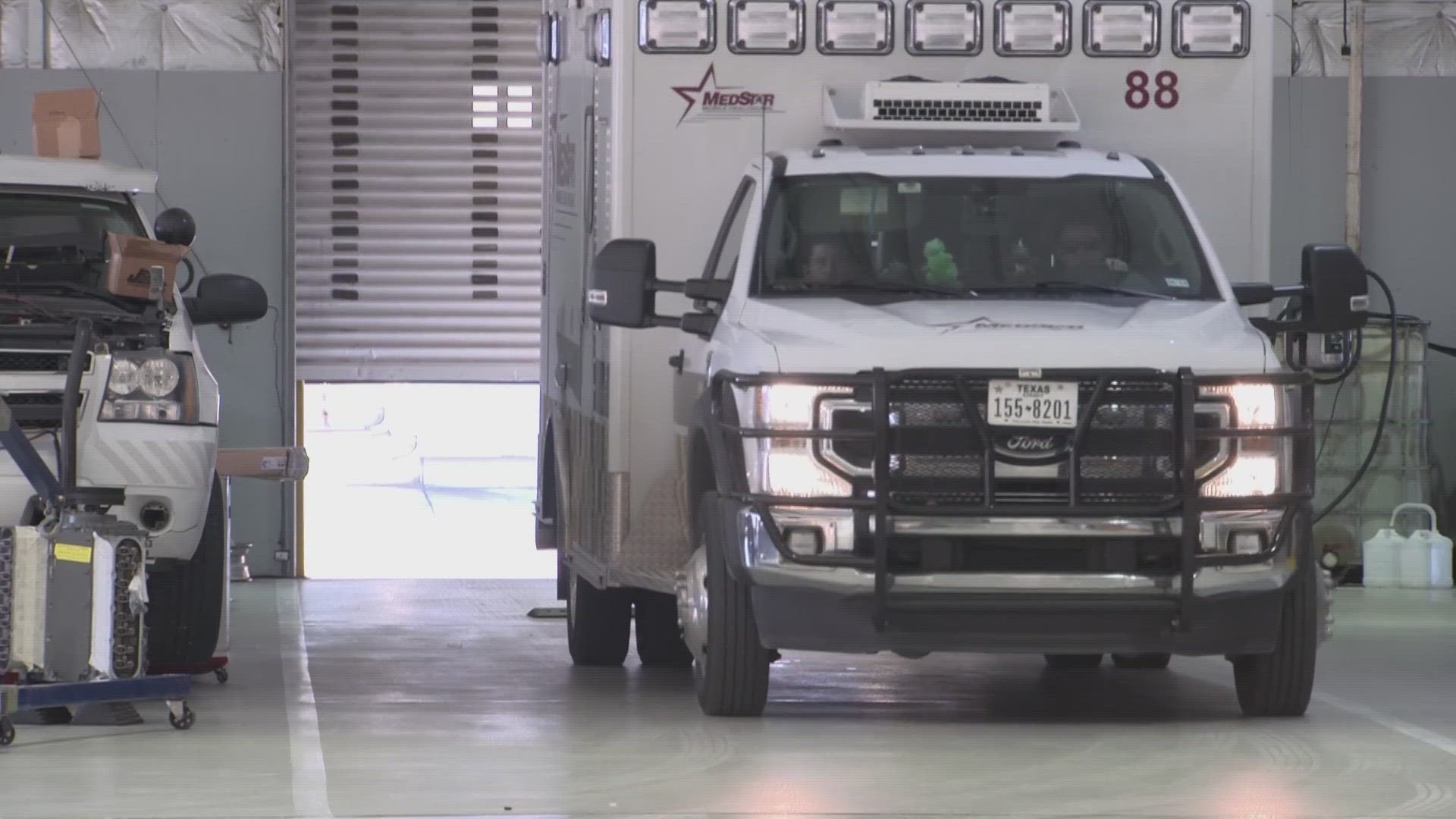FORT WORTH, Texas — Fort Worth leaders will soon decide how to reorganize MedStar, the city's emergency services provider that's struggled lately to balance its budget.
Even MedStar officials acknowledge its current operating model is not sustainable. Ambulances, equipment, and employees have become more expensive.
Still, Medicaid, for example, reimburses ambulatory service providers at the 2007 rate.
Tarrant County's rapid growth has also created more work for MedStar. The entity's current resources are stretched thin, spokesperson Matt Zavadsky told WFAA.
"As those cities gain population, those people bring emergencies," he said. "They bring falls. They bring car crashes. So, the call volume goes up as the population grows."
For three years, Zavadsky says MedStar has tapped reserves to balance its budget.
"The current service level the community is asking for is not sustainable, given the current economic model," he added.
For this reason, Fort Worth's city council has formed a special committee to analyze potential solutions. A consulting firm has laid out four options, which would each require public investment in emergency medical services.
MedStar provides services to 14 cities, but Fort Worth leaders will ultimately decide its future. Council members must decide whether to infuse tax dollars into MedStar, have the Fort Worth Fire Department handle EMS work, start a new emergency medical service, or hire a private company for the job.
"Nationwide, what's happening? EMS models are no longer sustainable," Fort Worth city council member Carlos Flores said. "It's a testament to MedStar, too, that they've been able to operate for this many years without public subsidy."
If Fort Worth's city council decides to preserve MedStar, members would take over the entity's board. Council members would replace the delegates they have previously appointed to the board.
Such a move would strip other cities of some say over MedStar's operation, though the 13 municipalities only have a single representative on the current panel. MedStar prefers this solution, which would also be the cheapest path forward.
"We hope that the community and the decision-makers will realize the value the current model brings to the system," Zavadsky said.
The consultants working on the plan commended MedStar for its past performance. Flores stressed the ongoing conversation about reorganizing MedStar is not solely focused on the entity's response times.
Consultants found that investing tax dollars into MedStar's operations could improve response times by 5.5 minutes.

